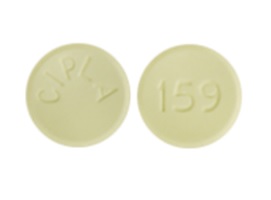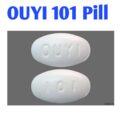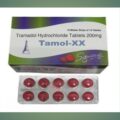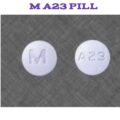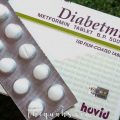The round yellow pill with imprint CIPLA 159 has been identified as Meloxicam 15 mg supplied by Cipla USA. CIPLA 159 belongs to a class of drugs called nonsteroidal anti-inflammatory drugs (NSAIDs). NSAIDs help reduce pain, inflammation, and fever. It is used in the treatment of osteoarthritis; juvenile rheumatoid arthritis; rheumatoid arthritis; and pain. It isn’t known how this medication works to decrease pain. It may help reduce swelling by lowering levels of prostaglandin, a hormone-like substance that usually causes inflammation.
This drug has a black box warning. This is the most serious warning from the Food and Drug Administration (FDA). A black box warning alerts doctors and patients about drug effects that may be dangerous.
Can Cipla 159 get you high?
Although Cipla 159 has some potentially dangerous side effects, like other NSAIDs, it is not able to cause euphoria, or a high, that could potentially lead to addiction or substance abuse.
Cipla 159 Pill Side Effects
Cipla 159 Pill can cause mild or serious side effects. The following list contains some of the key side effects that may occur while taking meloxicam. This list does not include all possible side effects. For more information on the possible side effects of meloxicam, or tips on how to deal with a troubling side effect, talk with your doctor or pharmacist.
More common side effects
The more common side effects that can occur with meloxicam include:
- abdominal pain
- diarrhea
- indigestion or heartburn
- nausea
- dizziness
- headache
- itching or rash
If these effects are mild, they may go away within a few days or a couple of weeks. If they’re more severe or don’t go away, talk to your doctor or pharmacist.
Serious side effects
Call your doctor right away if you have serious side effects. Call 911 if your symptoms feel life-threatening or if you think you’re having a medical emergency. Serious side effects and their symptoms can include the following:
- Heart attack. Symptoms can include:
- chest pain or discomfort
- trouble breathing
- cold sweat
- pain or discomfort in one or both arms, your back, shoulders, neck, jaw, or area above your belly button
Stroke.
Symptoms can include:
- numbness or weakness of your face, arm, or leg on one side of your body
- sudden confusion
- trouble speaking or understanding speech
- vision problems in one or both eyes
- trouble walking or loss of balance or coordination
- dizziness
- severe headache with no other cause
Stomach and intestinal problems, such as bleeding, ulcers, or tearing. Symptoms can include:
- severe stomach pain
- vomiting blood
- bloody stools
- black, sticky stools
Liver damage.
Symptoms can include:
- dark urine or pale stools
- nausea
- vomiting
- not wanting to eat
- pain in your stomach area
- yellowing of your skin or whites of your eyes
- Increased blood pressure: Symptoms of extreme high blood pressure can include:
- dull headache
- dizzy spells
- nosebleeds
Water retention or swelling.
Symptoms can include:
- rapid weight gain
- swelling in your hands, ankles, or feet
- Skin problems, such as blistering, peeling, or red skin rash
Kidney damage.
Symptoms can include:
- changes in how much or how often you urinate
- pain with urination
- Decreased red blood cells (anemia)
Gastrointestinal Side Effects
Abdominal pain, diarrhea, upset stomach, and nausea occur very often with this drug. Pain, vomiting, and diarrhea may occur more often in children than adults. Sometimes these side effects can cause more serious stomach problems.
FDA warnings
This drug has a black box warning. This is the most serious warning from the Food and Drug Administration (FDA). A black box warning alerts doctors and patients about drug effects that may be dangerous.
Heart risk warning: This drug may increase your risk of developing a blood clot, heart attack, or stroke, which can be fatal. Your risk may be higher if you’re taking it long term, at high doses, or if you already have heart problems or risk factors for heart disease, such as high blood pressure. You shouldn’t take meloxicam for pain before, during, or after coronary artery bypass graft surgery. This can increase your risk for a heart attack or stroke.
Stomach problems warning: This medication may increase your risk of developing stomach and intestinal problems. These include bleeding, ulcers, and holes in your stomach or intestines, which can be fatal. These effects can occur any time while you’re taking this drug. They may happen without any signs or symptoms. Adults aged 65 years and older are at higher risk of these stomach or intestinal problems.
Allergy warning
Don’t take meloxicam if you’ve had itchy skin, symptoms of asthma, or an allergic reaction to aspirin or other NSAIDs. A second reaction could be much more severe.
Liver damage warning
This drug may affect your liver. Symptoms may include yellowing of your skin or whites of your eyes and liver inflammation, damage, or failure. Your doctor may check your liver function while you take this drug.
Blood pressure warning
This medication may increase or worsen your blood pressure. This can increase your risk of heart attack or stroke. Your doctor may check your blood pressure while you’re taking meloxicam. Some medicines for high blood pressure may not work as well as they should when you’re taking meloxicam.
Allergy warning
Meloxicam can cause a severe allergic reaction. Symptoms may include:
- trouble breathing
- swelling of your throat or tongue
- hives
Don’t take meloxicam if you have asthma, runny nose, and nasal polyps (aspirin triad). Don’t take it if you’ve had itching, trouble breathing, or an allergic reaction to aspirin or other NSAIDs. Don’t take this drug again if you’ve ever had an allergic reaction to it. Taking it again could be fatal (cause death). SEE: How to Spot Fake Tramadol Pills


